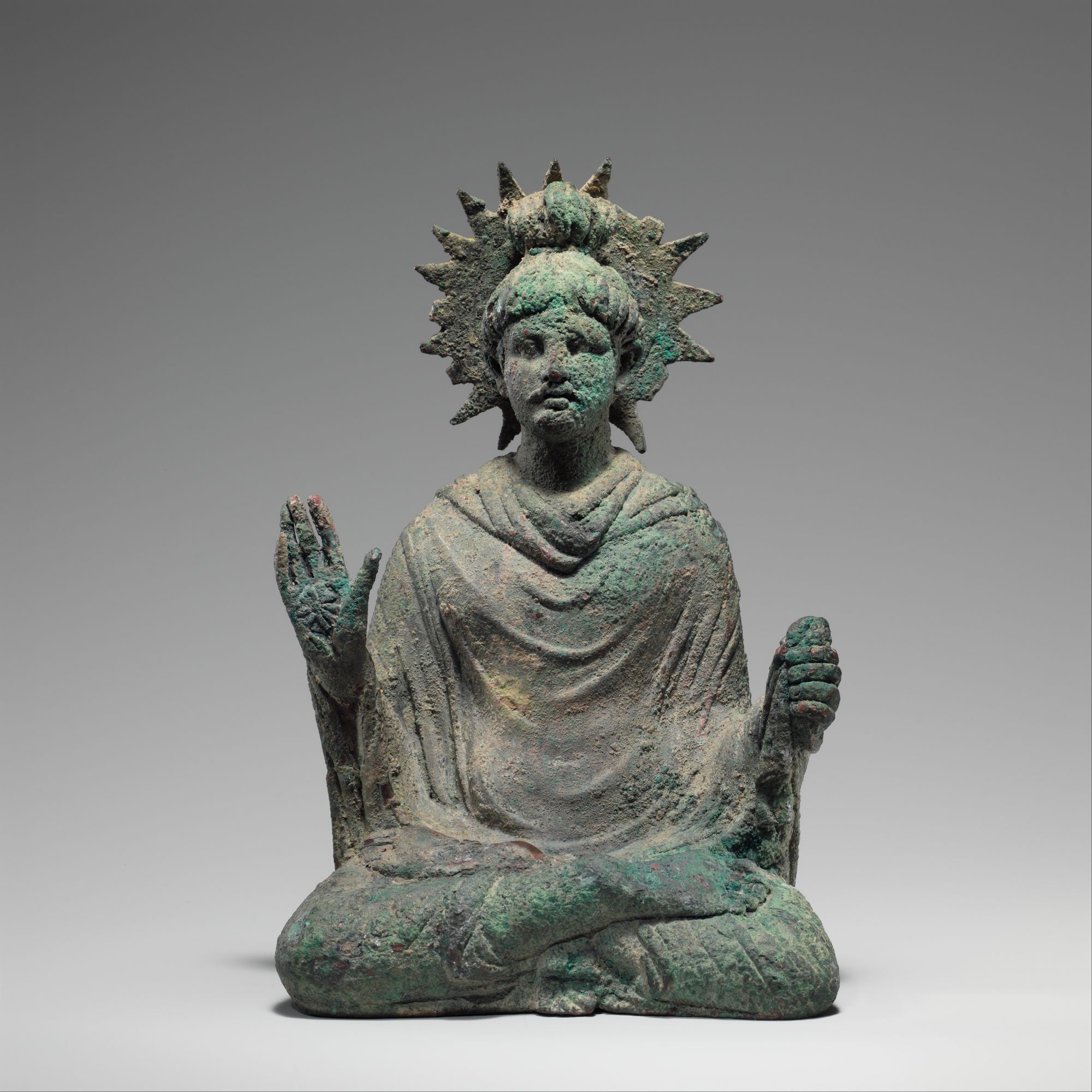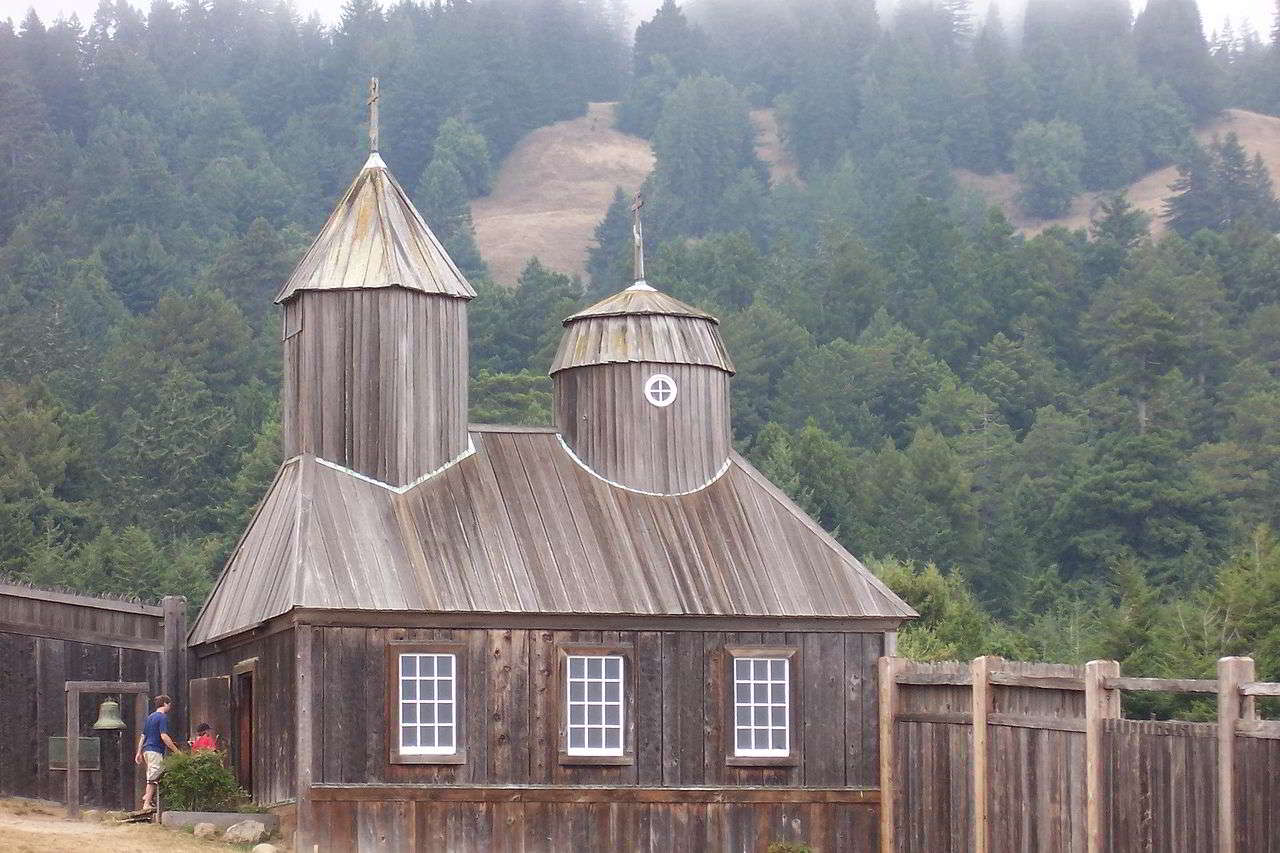You might read or hear about many interesting things happened in History. But most probably you didn't hear these things. Presenting five amazing facts that will change the way you look at history.
1. Ancient China Was Aware Of Ancient Rome, Thought It Was Rather Wacky
We know about ancient Rome. We know about ancient China. We tend to think of them as sealed off from one another as if someone locked them into separate jars like peanut butter and jelly.
But sandwiches, uh, find a way.
Genetic evidence shows that people from Europe had contact with people in China as early as the 3rd century BCE. As in, carnal contact (they found European mitochondrial DNA in the residents of Western China). On the flip side, in 2010, archaeologists in Italy unearthed a tomb from the 2nd century CE containing a man with an East Asian mother. They all got around, is our point.
But perhaps the most interesting evidence we have comes from the Weilue, a document the Chinese compiled about the Roman Empire during the 3rd century AD, which even included directions on how to get there.
They called Rome Da Qin, a land of amazing conjurers who could "produce fire from their mouths" and "juggle 12 balls with extraordinary skill." They thought Da Qin residents were "tall and virtuous," like the Chinese, except for their crazy clothes. But what seemed to baffle the Chinese the most was the concept of non-permanent rulers. They believed Da Qin was ruled by "numerous minor kings" who were selected due to their virtue and then unceremoniously fired whenever calamities befell the kingdom. They wrote that in those cases, the kings always left the job in good spirits and without complaining, which has to be the greatest work of science fiction ever produced in China.
2. Karl Marx Supported Abraham Lincoln And Sent Him Letters
Karl Marx is one of those names you can't bring up during Thanksgiving dinners without a political and/or food fight. The opposite is true about Abraham Lincoln, an uncontested hero to just about everyone ... including Karl Marx. Despite the massive gulf in the American perception of these two historical figures, Marx was a big fan of Lincoln. There hasn't been a more controversial presidential pairing since Kanye started wearing that MAGA cap.
Marx wrote to Lincoln on behalf of the United Kingdom's International Workingmen's Association to congratulate him on his reelection and cheer him on the whole "kicking slavery's ass" thing. Because if there was one thing Marx hated, it was unpaid labor.
3. There Were Greco-Buddhist Kingdoms
Alexander the Great was called Alexander the Great and not Alexander the Adequate because his conquests stretched well beyond ancient Greece into the Indian subcontinent. The result was a mixture of hybrid kingdoms and cultural exchange the likes of which wouldn't be seen again until the popularity of "fusion" restaurants in California.
One of the most interesting was Greco-Bactria, the mixing of Greek with Indian and Buddhist culture. From around the 4th century BCE to the 5th century CE, Greco-Buddhism flourished in the modern-day regions of Afghanistan, Pakistan, and northwest India. It started with Alexander building cities as he moved around the world like someone playing Civilization with cheat codes. There, colonists mixed Greek myth with Buddhist iconography. So if you ever wondered what Buddha would look like if sculpted by ancient Greeks, here you go:
4. Colonial Americans Helped Out In The English Civil War
Colonial Americans didn't think of themselves as American, mainly because that wasn't really a thing yet. They were British citizens. That meant that in the 1640s, when England devolved into a civil war (or revolution, depending on which historian you ask), so too did its colonies. About 130 years before America went all out on King George III, American colonists took up arms against King Charles I, only it was to side with the British Parliament.
New Englanders played an important role in the conflict. The anti-Charles Parliamentarians were Puritans, and New England was one big unsexy Puritan orgy. When the call came up, many Americans enlisted. Thomas Rainborowe, a New England colonel, sailed a regiment of Puritan fighters 3,000 miles to fight in England, and once the fighting was over, he advocated for a radical new idea that might sound familiar: extending the vote to all free men. (But just men; he wasn't that radical.)
There were battles in America proper too, most notably the Battle of the Severn, when the tensions between Puritans and Catholics back in the Old World spilled over into the new one and adherents to both sides ended up tussling in the streets of Annapolis. Thankfully we've evolved enough to not kill each other every time Manchester United beats Arsenal or whatever.
5. The Russian Empire Once Owned Part Of California
We tend to think that America was pretty much already America by the 19th century, minus some pockets of Frenchness and Mexicanness here and there. Truth is, there were many other European powers vying for pieces of North America well into the 1800s, and even Russia had its cold fingers creeping down the coast.
Everyone knows that Alaska was part of Russia until America bought it, but that was really like buying a piece of Canada and throwing a "Made in America" sticker on the land. What's more interesting is that we bought part of California from Russia too. They owned a chunk of the Pacific Northwest and administered it from a place called Fort Ross, which looks like someone grabbed a Siberian building and dumped it in the middle of Sonoma County.
1. Ancient China Was Aware Of Ancient Rome, Thought It Was Rather Wacky
We know about ancient Rome. We know about ancient China. We tend to think of them as sealed off from one another as if someone locked them into separate jars like peanut butter and jelly.
But sandwiches, uh, find a way.
Genetic evidence shows that people from Europe had contact with people in China as early as the 3rd century BCE. As in, carnal contact (they found European mitochondrial DNA in the residents of Western China). On the flip side, in 2010, archaeologists in Italy unearthed a tomb from the 2nd century CE containing a man with an East Asian mother. They all got around, is our point.
But perhaps the most interesting evidence we have comes from the Weilue, a document the Chinese compiled about the Roman Empire during the 3rd century AD, which even included directions on how to get there.
 |
| Source |
They called Rome Da Qin, a land of amazing conjurers who could "produce fire from their mouths" and "juggle 12 balls with extraordinary skill." They thought Da Qin residents were "tall and virtuous," like the Chinese, except for their crazy clothes. But what seemed to baffle the Chinese the most was the concept of non-permanent rulers. They believed Da Qin was ruled by "numerous minor kings" who were selected due to their virtue and then unceremoniously fired whenever calamities befell the kingdom. They wrote that in those cases, the kings always left the job in good spirits and without complaining, which has to be the greatest work of science fiction ever produced in China.
2. Karl Marx Supported Abraham Lincoln And Sent Him Letters
Karl Marx is one of those names you can't bring up during Thanksgiving dinners without a political and/or food fight. The opposite is true about Abraham Lincoln, an uncontested hero to just about everyone ... including Karl Marx. Despite the massive gulf in the American perception of these two historical figures, Marx was a big fan of Lincoln. There hasn't been a more controversial presidential pairing since Kanye started wearing that MAGA cap.
 |
| Karl Marx |
Marx wrote to Lincoln on behalf of the United Kingdom's International Workingmen's Association to congratulate him on his reelection and cheer him on the whole "kicking slavery's ass" thing. Because if there was one thing Marx hated, it was unpaid labor.
3. There Were Greco-Buddhist Kingdoms
Alexander the Great was called Alexander the Great and not Alexander the Adequate because his conquests stretched well beyond ancient Greece into the Indian subcontinent. The result was a mixture of hybrid kingdoms and cultural exchange the likes of which wouldn't be seen again until the popularity of "fusion" restaurants in California.
 |
| Source |
One of the most interesting was Greco-Bactria, the mixing of Greek with Indian and Buddhist culture. From around the 4th century BCE to the 5th century CE, Greco-Buddhism flourished in the modern-day regions of Afghanistan, Pakistan, and northwest India. It started with Alexander building cities as he moved around the world like someone playing Civilization with cheat codes. There, colonists mixed Greek myth with Buddhist iconography. So if you ever wondered what Buddha would look like if sculpted by ancient Greeks, here you go:
4. Colonial Americans Helped Out In The English Civil War
Colonial Americans didn't think of themselves as American, mainly because that wasn't really a thing yet. They were British citizens. That meant that in the 1640s, when England devolved into a civil war (or revolution, depending on which historian you ask), so too did its colonies. About 130 years before America went all out on King George III, American colonists took up arms against King Charles I, only it was to side with the British Parliament.
New Englanders played an important role in the conflict. The anti-Charles Parliamentarians were Puritans, and New England was one big unsexy Puritan orgy. When the call came up, many Americans enlisted. Thomas Rainborowe, a New England colonel, sailed a regiment of Puritan fighters 3,000 miles to fight in England, and once the fighting was over, he advocated for a radical new idea that might sound familiar: extending the vote to all free men. (But just men; he wasn't that radical.)
There were battles in America proper too, most notably the Battle of the Severn, when the tensions between Puritans and Catholics back in the Old World spilled over into the new one and adherents to both sides ended up tussling in the streets of Annapolis. Thankfully we've evolved enough to not kill each other every time Manchester United beats Arsenal or whatever.
5. The Russian Empire Once Owned Part Of California
We tend to think that America was pretty much already America by the 19th century, minus some pockets of Frenchness and Mexicanness here and there. Truth is, there were many other European powers vying for pieces of North America well into the 1800s, and even Russia had its cold fingers creeping down the coast.
Everyone knows that Alaska was part of Russia until America bought it, but that was really like buying a piece of Canada and throwing a "Made in America" sticker on the land. What's more interesting is that we bought part of California from Russia too. They owned a chunk of the Pacific Northwest and administered it from a place called Fort Ross, which looks like someone grabbed a Siberian building and dumped it in the middle of Sonoma County.
 |
| Source |






No comments:
Post a Comment